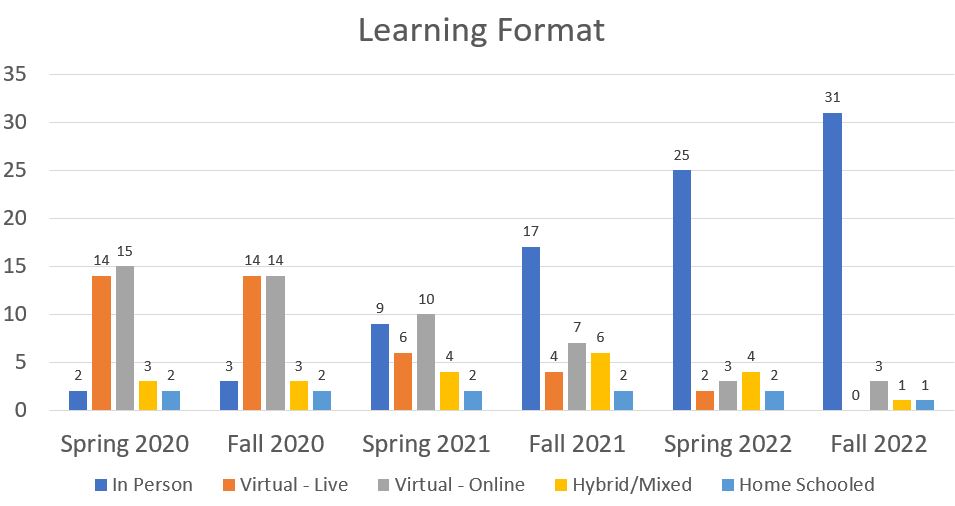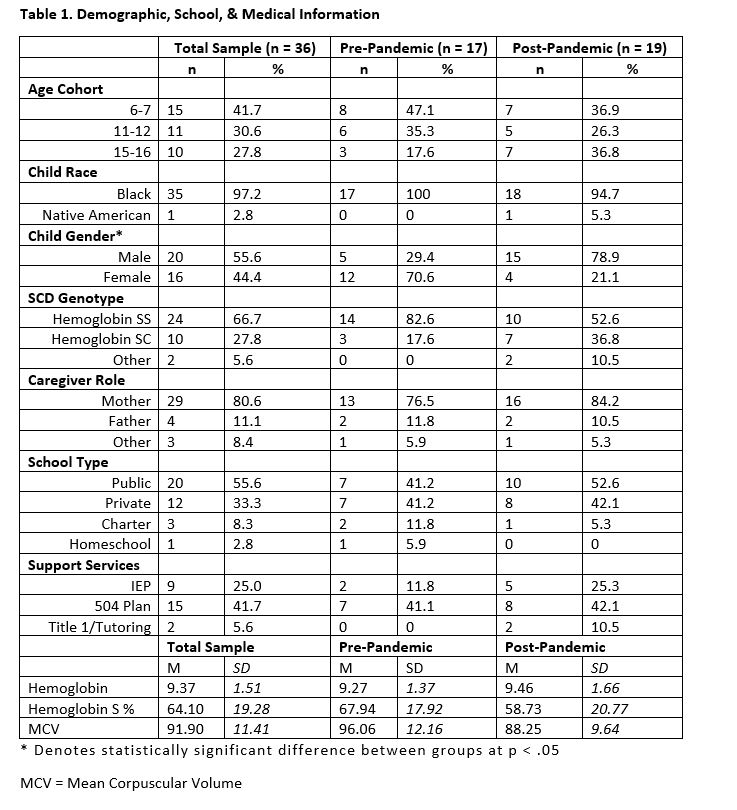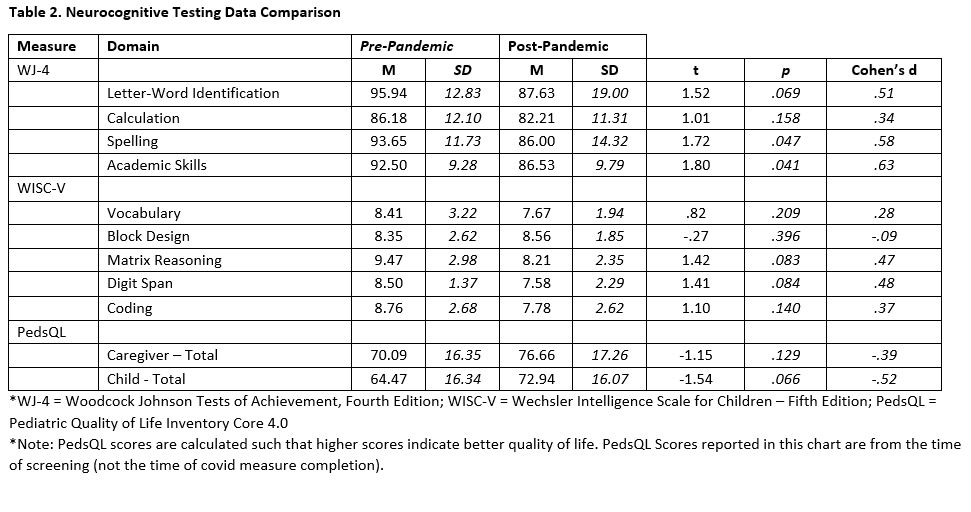Hematology/Oncology 2: Pediatric Hematology
Session: Hematology/Oncology 2: Pediatric Hematology
117 - The Impact of the COVID Pandemic on Neurocognitive and Academic Performance in Pediatric Sickle Cell Disease
Saturday, April 26, 2025
2:30pm - 4:45pm HST
Publication Number: 117.6649
Jeffrey S. Karst, Medical College of Wisconsin, Milwaukee, WI, United States; Meghan S. Miller, Medical College of Wisconsin, Milwaukee, WI, United States; Kristin Bingen, Medical College of Wisconsin, Milwaukee, WI, United States; Jennifer Hoag, Medical College of Wisconsin, Milwaukee, WI, United States; Amanda Brandow, Medical College of Wisconsin, Milwaukee, WI, United States

Jeffrey S. Karst, PhD
Associate Professor of Pediatrics, Pediatric Psychologist
Medical College of Wisconsin
Milwaukee, Wisconsin, United States
Presenting Author(s)
Background: The COVID pandemic and the interruptions in academic and social support systems disproportionately affected children with chronic illness and under-resourced and minoritized communities. Children with sickle cell disease (SCD) often faced increased risks due to their immune compromised status, socioeconomic disadvantages, and frequent experiences of systemic discrimination.
Objective: This study sought to evaluate the cognitive, academic, and social-emotional impact of the COVID pandemic on children with SCD.
Design/Methods: Retrospective analysis of neurocognitive and academic functioning compared children completing routine neurocognitive screening before (March 2019 – February 2020; n = 17) and after (November 2020 – February 2022; n = 19) the onset of the pandemic. Screening measures included selected subtests from the Wechsler Intelligence Scale for Children, Fifth Edition (WISC-V) and Woodcock Johnson Tests of Achievement, Fourth Edition (WJ-4) as well the PedsQL 4.0 Core. All enrolled patients (N = 36) also completed the COVID-19 Exposure and Family Impact Survey (CEFIS), SCD-adapted CoRonavIrus Health Impact Survey (CRISIS) at the time of study enrollment.
Results: Results suggested lower academic scores in the post pandemic group (M = 86.53, SD = 9.79) compared to the pre-pandemic group (M = 92.50, SD = 9.28). Compared to normative means, 47.4% of the post-pandemic group scored greater than one SD below the mean, compared to 17.6% of pre-pandemic participants. Significant differences were not identified among five domains of cognitive functioning nor in assessment of health-related quality of life. CEFIS Exposure scores were significantly and inversely associated with Caregiver reported quality of life. Among all participants in the study, 42% had a family member hospitalized for COVID-19. Nearly half of caregivers reported feeling extremely worried about their child’s health being impacted by COVID-19, while 33% of patients reported being very or extremely worried about their school progress due to pandemic associated interruptions.
Conclusion(s): The COVID-19 pandemic had a significant, negative impact on the academic and social-emotional functioning of children with SCD and their families. Increased support and advocacy is needed to account for these ongoing challenges.
Learning Format
 Learning Format of Participants by Semester
Learning Format of Participants by SemesterDemographic, School, & Medical Information

Neurocognitive Testing Data Comparison


